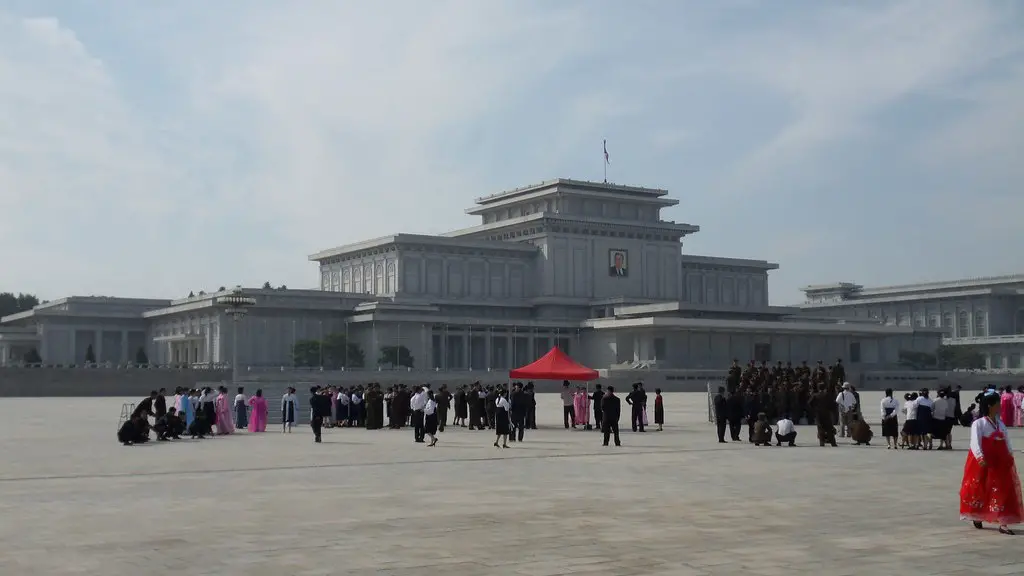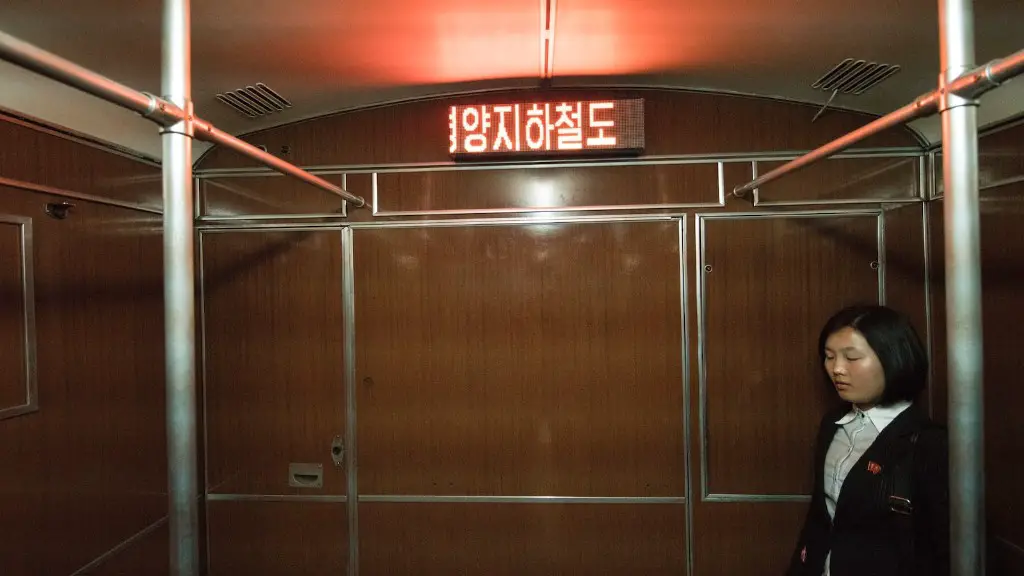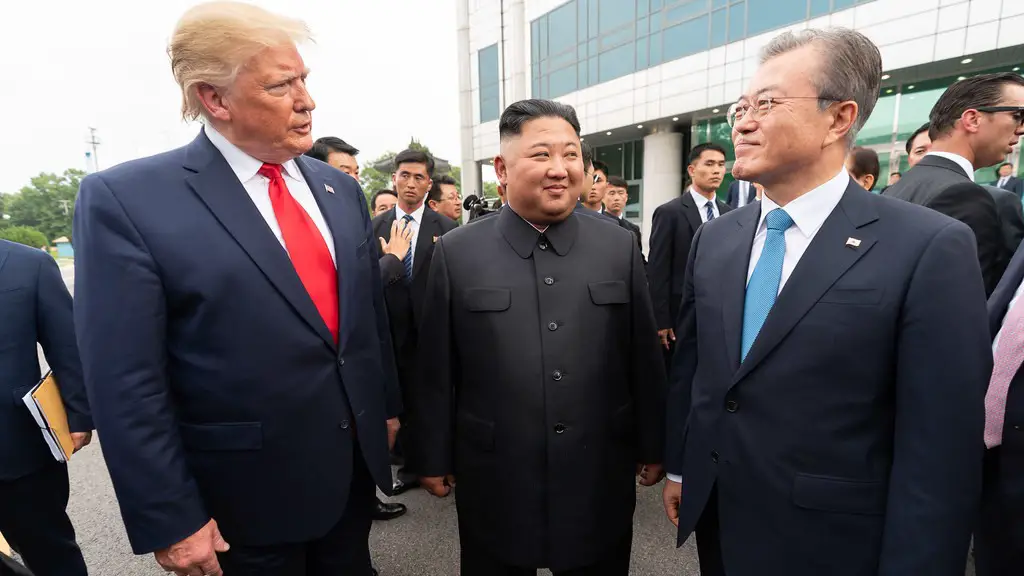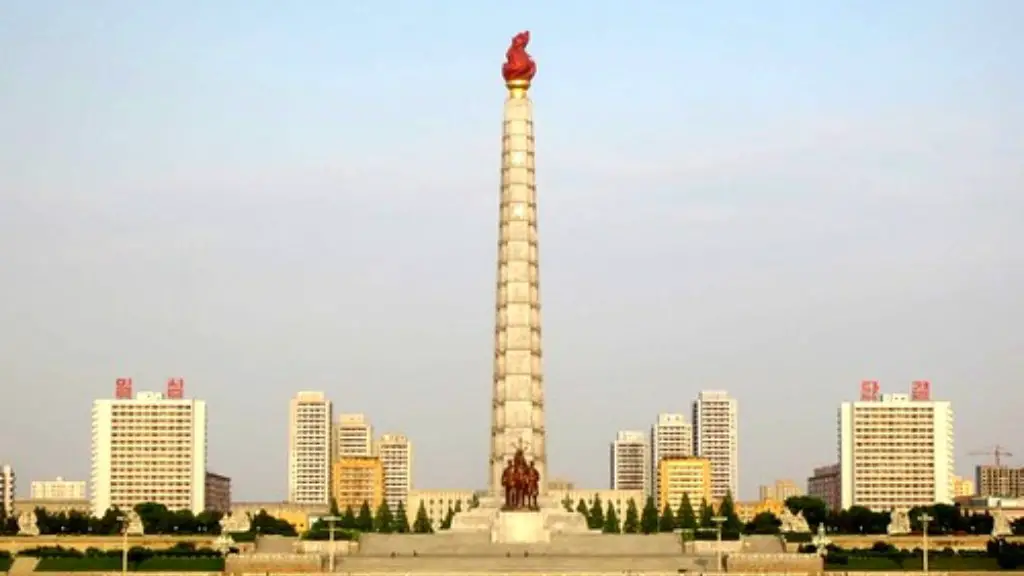How To Bring Down North Korea
North Korea poses a complex and difficult challenge to the world in how to bring it into the international community as a responsible participant. As one of the world’s last hermit states, North Korea has long been isolated from much of the world and from the processes and regulations that guide the global economy. It is a nation that has resisted innovation for a long time and has a long history of human rights abuses, as well as an erratic and unpredictable foreign policy. Despite its closed borders and refusal to engage with the international community, North Korea has managed to remain an incredibly influential and powerful player in both the region and in the world. This article aims to explore the various strategies and approaches that could be used to bring down North Korea and help bring it into the fold of international responsibility.
One of the most commonly discussed ways to bring down North Korea is through economic pressure. Through diplomatic efforts and economic sanctions, the international community has been able to place significant economic pressure on the country. This has had an impact on North Korea’s ability to procure materials and resources needed for the development of its nuclear program, as well as its ability to finance the development of other armaments. It has also had a significant impact on the general standard of living in the country, with increased poverty and a decrease in basic necessities becoming more and more common.
For an economic focused strategy to be successful, it must be accompanied by other measures. This is because economic pressure will only be effective as long as North Korea’s leadership believes that continuing to pursue its nuclear ambitions will lead to improvement in its situation. Without positive steps from other countries, it could become difficult to sustain economic pressure over a long period of time.
In addition to economic pressure, there have been a number of calls for a more direct approach to dealing with North Korea. Although military interventions have historically proven to be incredibly costly and devastating, there have been some that have proposed the use of targeted airstrikes on key military installations and strategic sites. This could potentially be used as a way to incapacitate the North Korean government and force it to begin negotiations.
In addition to economic and military approaches, there have also been a number of other strategies proposed to bring down North Korea. An important part of these strategies involve strengthening international relationships with surrounding countries, particularly those in South Korea and Japan. This could involve increasing diplomatic and economic ties, as well as providing support for issues that those countries consider to be in the best interests of their people.
Finally, it is important to recognize the importance of engaging with North Korean citizens. Although economic and military pressure have their place, it is also important to recognize that North Korea is a country with its own unique culture, history, and society, and that engaging with its citizens can play an important role in bringing about a change in the country. This could involve encouraging international business and people-to-people exchanges with North Korea, as well as providing support for the North Korean people in areas such as health care and education.
Human Rights Violations
One of the underlying problems North Korea faces is its consistent human rights violations. These abuses include but are not limited to indoctrinating young citizens with an oppressive interpretation of the state’s “juche” ideology, the imprisonment of citizens without cause or trial, the denial of basic freedoms of expression, association and religion, and the use of public executions. It is critical to recognize that the international community is responsible for not only actively defending universal values and human rights, but also ensuring that no state violates them. The reality is, North Korea’s oppressive regimes have to go if it wants to become a free and just society, and to be able to fully integrate into the world community and access the global economy.
The United Nations has played an important role in addressing violations of human rights in North Korea, although implementation has sometimes not been easy to pursue. In 2014, the United Nations appointed a special Rapporteur to North Korea to document and investigate the situation in the country and report his findings back to the UN Human Rights Council. However, in order to produce meaningful results, it is important that the international community embraces its responsibility to actively pressure North Korea to comply with human rights standards, and to ultimately put an end to its oppressive and dictatorial practices.
One example of this could involve exerting economic pressure, cutting off trade and investments, and limiting access to North Korean markets, as well as the international banking system. This would directly serve as a punishment for North Korea’s violent and oppressive policies, while also providing an incentive for the state to start taking steps towards compliance with universal values and human rights.
International Pressure
The international community can also exert pressure on North Korea by enforcing various restrictions. For example, the UN Security Council has imposed sanctions against North Korea since 2006, aiming to put an end to its nuclear program. These sanctions have included travel bans on senior officials, financial restrictions on companies, and the restriction of trade in certain goods. It is important to recognize that the implementation of sanctions has been staggered and restricted when it comes to North Korea, as the country has been so successful in avoiding them through a wide range of diplomatic, economic and military techniques.
Efforts to impede North Korea’s access to the global banking system have also been an important way of putting pressure on the government. Nations around the world have imposed restrictions on North Korea’s access to the global banking and financial system, which has had an impact on the government’s ability to finance its nuclear program, as well as its ability to transfer money for the purchase of goods and services. This is an ongoing effort, and it is important for countries to continue to enforce financial restrictions and deny access to the global market.
It is also important for nations to work together to combat North Korea’s efforts to evade sanctions by smuggling and evading international trade laws. By turning a blind eye to North Korea’s efforts to circumvent these restrictions, the nation’s leadership has been able to continue to finance its nuclear program and develop its weapons capabilities. The international community must be aware of North Korea’s attempts to gain access to the international financial system, and to systematically deny any attempts to do so.
Cultural Influence
In order to bring down North Korea, it is important to recognize that the country’s culture must also be taken into consideration. North Korea is a state with a long history and a rich culture, and it is essential to recognize that any actions taken must be done so in a way that does not ignore or disrespect North Korea’s own identity. This could include the promotion of peaceful dialogue and diplomacy, the development of cultural and creative exchanges, and the encouragement of open discourse and collaboration.
Cultural exchange can play an important role in changing the ways in which North Korea interacts with the international community. This could involve the sharing of stories, ideas, and ideals between North Koreans and people in other countries, as well as the promotion of cultural artefacts and performances. This could be done through the sharing of music, art and books, as well as through the promotion of better relationships and dialogue through video calls, social media, and other digital platforms.
It is also important to recognize that cultural exchange can be a powerful tool for bringing about positive change in North Korea. Through cultural exchange, people from different countries can come to understand each other, leading to greater understanding and trust between nations. This could ultimately lead to the development of an international dialogue, which could prove to be crucial in finding a peaceful solution to the North Korean crisis.
Capitalizing On Change
One of the most important aspects of bringing down North Korea is capitalizing on the changes that have already taken place in the country. For example, the death of its long-term leader Kim Jong-Il in 2011 was a pivotal moment in the history of the country, and since then the leadership of the nation has experienced a number of changes. This has provided some degree of hope for the change and opening of the country, especially as its current leader, Kim Jung-Un, has taken a more open and progressive stance on certain issues.
Supporters of this approach argue that this period of change should be taken advantage of, in order to create an environment conducive to a successful transition from an oppressive and authoritarian regime to an open, liberal and democratic one, without resorting to military means. It is important to remember, however, that this approach should be undertaken with caution, as North Korea is still a state that is deeply entrenched in its foreign policies, and any slight misstep could have drastic consequences.
This approach must also acknowledge and take into account the restrictions and limitations imposed by North Korea’s current policies. For example, any attempts to open up the country to democracy are likely to be faced with strong resistance from the regime, and any attempts to increase the level of foreign influence in the country would likely be met with pushback. There is also the risk that any changes brought about in the short term may be difficult to sustain over a more extended period of time.
Role Of External Actors
The role of external actors in bringing about a change in North Korea is also critical. While the country is traditionally known for its isolationism and intransigence towards the international community, there is evidence to suggests that North Korea has recently been more open to engaging with external powers. This could include engaging in negotiations and dialogue, as well as seeking out assistance in areas such as economic development.
It is important to recognize, however, that there are limits to what external actors can do, and that the role of external actors in bringing about a change in North Korea should not be overstated. Nonetheless, there are signs that external actors can play an important role, and North Korea could be genuinely open to engaging with the international community if given the chance.
Support from foreign governments, particularly those in the United States, China and South Korea, plays a critical role in bringing about a positive change in North Korea. Through diplomatic and economic means, these nations are able to provide incentives to North Korea to open up and become more involved in the international community, as well as to provide support for North Korean people who are struggling with the effects of oppressive regimes.
The role of international non-governmental organizations (INGOs) is also important in influencing North Korea’s decision-making. Through programs such as those funded and sponsored by the European Union’s “European Initiative on Human Rights in North Korea”, as well as through more informal channels such as private citizen exchanges, these organizations are able to provide an important source of support and advice to the North Korean people, and to help foster an environment of peaceful and constructive dialogue.
Technology Transfer
At the same time, it is also important to recognize that North Korea’s population is still very much reliant on outdated systems and technologies. This is a problem that external actors can help to address, through the provision of technology and resources.
This could involve the transfer of new technologies, such as internet access and mobile phones, as well as the provision of resources such as computers, electricity, and medicine. Providing access




